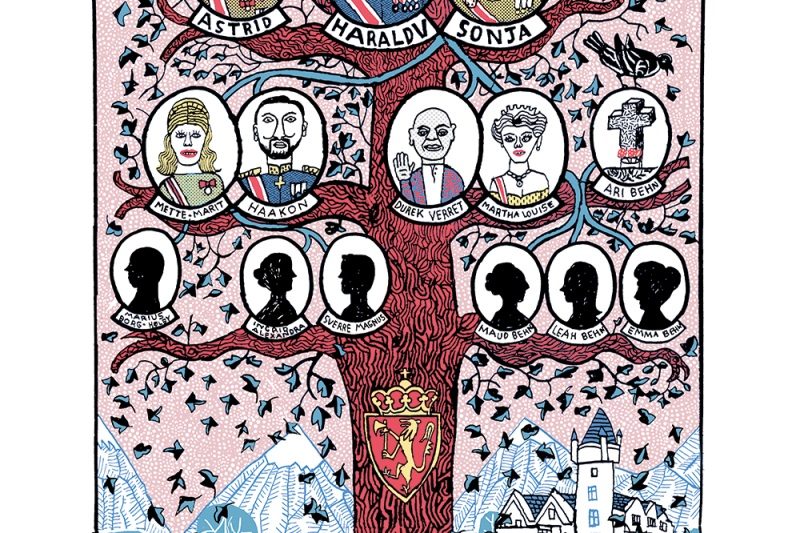Tom Baldwin declares at the outset of Keir Starmer: The Biography: “It’s only fair to warn those hoping to find these pages spattered with blood that they will be disappointed.” Fair enough. This is not an authorized biography, but it is a friendly one, written with Keir Starmer’s co-operation. Baldwin briefly worked as Britain’s Labour Party’s communications director, and then was asked to help Starmer with his autobiography. They did several interviews, but Starmer always had reservations and finally pulled the plug last spring. Instead, he agreed that Baldwin could write this book, using some of the material he had already gathered, and that he would assist him with contacts.
Starmer’s worst fault, according to his friends, is that he is so buttoned-up
Starmer is always reluctant to talk about his childhood but Baldwin has winkled out a lot. Both his parents sound remarkable. Jo, his mother, was a cheerful soul even though she had been diagnosed with Still’s disease — a particularly severe form of rheumatoid arthritis — when she was ten and told that she would not be able to walk or have children. She not only walked; she climbed the Lake District fells and had four children (Anna, Keir and the twins Katy and Nick) within four years of marriage. While Keir was growing up she was often hospitalized, and he remembers when he was thirteen his father ringing from the hospital and saying Jo was not expected to pull through. But she did, and died only nine years ago, just before Starmer became a member of parliament.
Rod, his father, was devoted to Jo but not particularly affectionate to his children. He never praised Keir, who was surprised to learn after Rod’s death that he had kept a secret album of press cuttings about him. A dour, taciturn man who worked all day as a toolmaker, came home for tea and then worked some more, he demanded silence at mealtimes so that he could read his paper. Starmer rushed to his bedside when he was dying in 2018 but still never had the heart-to-heart conversation he longed for.
They lived in Hurst Green, Sussex, in a modest pebble-dash semi-detached house (it sold for around $600,000 in 2021) with a field at the back which they later turned into a donkey sanctuary. It was quite a squash. Keir shared a bedroom with his brother Nick, who had learning difficulties. They also had four dogs, because the children were each given a dog for their tenth birthday, and they all packed into the family Cortina when they drove to the Lake District for their annual holiday. Jo loved going there, even when she had to be pushed up the fells in her wheelchair, and became friends with Alfred Wainwright, the author of the fellwalker guides, who sent her postcards when she was in hospital.
Keir was the only one of the children to go to grammar school — Reigate — and then to university — first Leeds, then Oxford, to read law. He specialized in international law and human rights and was one of a group of thirty progressive barristers, led by Geoffrey Robertson, who moved out of Temple to set up their own chambers in Doughty Street. One of them, Helena Kennedy, said: “We’d all fight to have Keir as our junior counsel. He was brilliant, crystal clear, very meticulous.” And he fought for two and a half years, pro bono, to defend the McLibel Two against the great weight of McDonald’s legal team. His thirty years’ work as a civil rights lawyer and then director of public prosecutions earned him a knighthood, and he remembers his father asking one of the Buckingham Palace flunkeys to hold their dog while he attended Keir’s investiture.
He had at least three long-term relationships but never showed any inclination to marry until he met Victoria Alexander, who was then a solicitor but now works for the NHS. He found her “grounded, sassy, funny, streetwise and utterly gorgeous too.” Most of their early courtship was conducted in north London pubs, but then they went on holiday to Greece and he proposed. They married in May 2007 and had their first child, a boy, the following year and their daughter in 2010.
Starmer was already in his fifties when he decided to join the parliament, hoping to be appointed a minister under his friend Ed Miliband. But then David Cameron won and he found being in opposition frustrating. He told Baldwin: “I have achieved less in opposition than at any other period in my life. It is noise but not change.” He was increasingly upset by the growing antisemitism in the party under Jeremy Corbyn (not least because his wife, though not practicing, is Jewish and they occasionally take the children to synagogue). When he won the Labour leadership in April 2020 he said that one of his first tasks would be to stamp out antisemitism, and he showed he meant it when he withdrew the whip from Corbyn. They have not spoken since. Now that he seems in sight of No. 10, his main worry is the effect on his family. Vic is reluctant to leave Kentish Town and his daughter says she won’t go.
Baldwin achieves his purpose of making Starmer seem more likable and less boring than expected. Decent, dogged, compassionate, incredibly hard-working, his worst fault according to his friends is that he is so buttoned-up. He can be warm and spontaneous with people he knows, but he seems to freeze in front of the cameras. Andrew Sullivan, who was at school with him, says: “I almost don’t recognize him when I see him on TV.” Angela Rayner admitted: “Keir wouldn’t be the first on my list for a karaoke night.”
The only thing I find off-putting about him is his passion for football. He goes to see Arsenal whenever he can and still, aged sixty-one, plays eight-a-side matches at weekends and sometimes five-a-side during the week. When he was laid up with a knee injury last year, he still insisted on organizing his team’s fixtures (just as Jimmy Carter was still managing the White House tennis court rota when he was president). I fear he suffers from the dangerous delusion that football keeps him in touch with real people. He should be reminded that there are quite a few real people — often women, gays and ethnic minorities — who don’t share this great bonding experience. I was glad to learn that Rachel Reeves thinks football “very boring.”
This article was originally published in The Spectator’s UK magazine. Subscribe to the World edition here.


























Leave a Reply